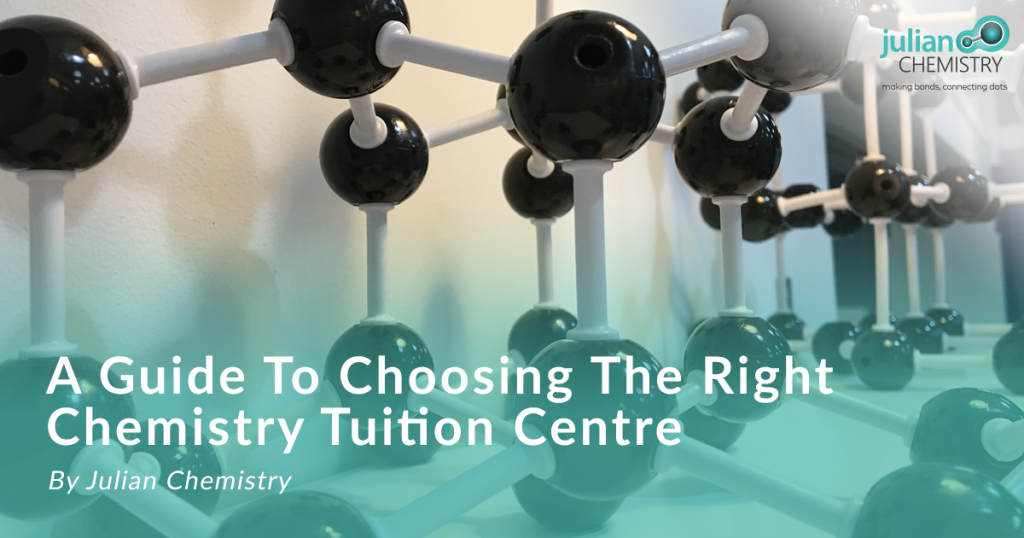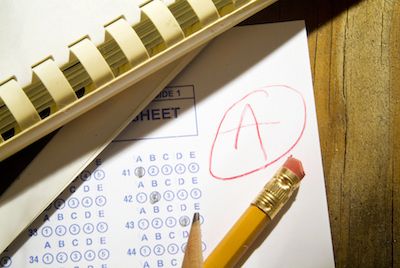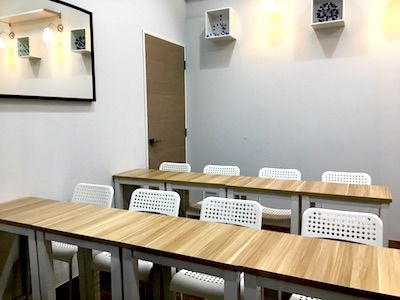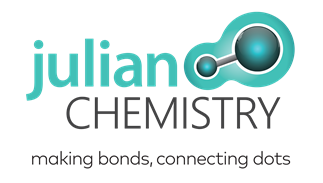A Guide To Choosing The Right Chemistry Tuition Centre
How To Interpret MOE’s University Cohort Participation Rate
June 16, 20175 better ways to prepare for your A Level Chemistry Exams
August 3, 2017
In a country where much significance is placed on Science and Technology, an average Singaporean student is quickly introduced to the sciences from the early stages of primary school. Due to the hectic nature of the school timetable, many students may not have mastered the foundations of Chemistry as well as they have liked, instead opting to memorise information they read from the textbooks. This technique might suffice in the beginning, but as the student progresses to Chemistry at the advanced level, they may struggle and even develop a phobia of Chemistry because they find chemical equations and experiments difficult to understand.
On the contrary, Chemistry is easy if the basic principles are properly taught and understood. For instance, one of the topics chemistry students often find difficult early on is the study of Redox reactions. The equations might appear complex at first glance, but before worrying about the reactants and products of a redox equation and trying to balance the equation from there, students should have a prior basic knowledge of ions, cations, anions, electropositivity, electronegativity, oxidation and reduction. From then on it is simply about following a fixed set of steps of adjusting the coefficients and balancing the atoms and charges.
In recent years, more students and parents are starting to realise that in order to truly excel in Chemistry at both the O and A levels, professional assistance and tutoring outside of school is necessary. Tuition centres are becoming widespread in Singapore and therefore we have presented a few pointers on choosing the right Chemistry tuition centre to help people make an informed decision.
Academic background and teaching experience

They say that a student is only as good as their teacher. A good teacher can have an immense impact on the learning experience of the student. While there are many Chemistry tuition centres with tutors branding themselves as trained teachers, one would have to scrutinize the academic background and relevant teaching experience of the tutor to fully understand if the tutor would meet the needs of the student seeking Chemistry tuition. This is because their teaching accreditations might not be subject specific to O and A level chemistry in Singapore. Moreover, most overseas teaching certifications are not applicable to the Singapore syllabus and are not recognised by MOE.
It would thus be preferable and beneficial to find a tutor who has vast experience teaching Chemistry in schools at O level and A level with H1, H2 and H3 Chemistry as opposed to a new and inexperienced tutor or one who has teaching experience but not in these subjects.
A good rule of thumb for an experienced tutor is that the tutor needs to have at least 10 years of teaching experience. As a bonus, if the tuition centre provides a tutor that has a relevant degree to Chemistry or has a MOE scholarship, it is a sure sign of MOE approved teaching quality and techniques. Such tutors have prior knowledge of examiner guidelines and past year papers and questions that would be vital to the students’ success.
Performance of past students

An impressive resume is not much if the tutors are not able to deliver the results. As parents, we need to know the proven results of the past students that have been through the chemistry tuition programmes. Many tuition centres have grade improvement results shown publicly, which is a positive indicator of their teaching methods.
However, instead of just focusing on a student who improved his grade over one term, parents and students might want to look at the long run and pick up on where the past students of the Chemistry tuition centre have ended up studying at during university and how well they are doing currently. It is relatively attainable to improve grades in the short run, but to cultivate a passion for deep learning of the sciences that produces consistent results in Chemistry throughout the O and A levels all the way to university signifies a symbol of excellence only a handful of tutors could provide.
Environment for learning

What most parents and students don’t realise is that a lot of Chemistry tuition centres classes are set up exactly like the ones in school. They provide huge classes above (>25), and are presented in a one-way delivery manner. A Chemistry tuition centre session should not be a replacement class for students, it should not be a two hour repetitive lecture based on the topic that was just taught in school, instead it should be a place where there is opportunity to clarify questions and to learn beyond what is stated in the textbook. Individual consultations are important, so are concise notes which should be provided so that students do not have to spend time copying notes again.
In addition, students from IP schools start earlier than O level students and cover more advanced topics for their exams, so if they rely on Chemistry tuition centres that run their classes disjointed to the IP H2 Chemistry curriculum, they will most probably feel overwhelmed because it is almost like studying an extra subject, trying to balance learning different topics at the same time. This is neither efficient nor advantageous for the learner. It is advisable for parents and students to seek Chemistry tuition centres which are able to provide classes that can work in tandem with the student’s enriched curriculum.
Style of teaching
The best Chemistry tuition centres focus on maximum personalized attention from the tutor. What is needed is a clear, concise and systematic way of explaining the key concepts related to the topic so that there is minimal requirement for pure memory of the all the information. Parents should look for Chemistry tutors who are more interested in enabling the students to understand the topics because that is the only way to get them interested and fascinated in Chemistry. Last of all, experience in the field of teaching Chemistry also adds to the versatility of the teaching methods and styles, allowing the tutor to cater to the demands of both the faster and slower students.
By Julian Chemistry
References
1. Teacher Education & Teaching Profession in Singapore (PDF Download Available). Available from: https://www.researchgate.net/publication/266477034_Teacher_Education_Teaching_Profession_in_Singapore [Accessed Jul 7, 2017].
2. Chemical Education In Singapore. Available from:
http://www.t.soka.ac.jp/chem/CEAP/Singapore.html. [Accessed Jul 7, 2017].
